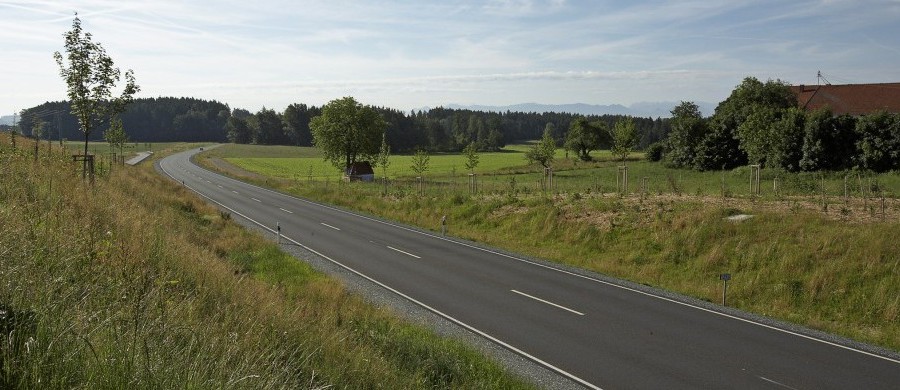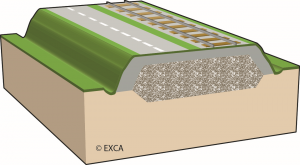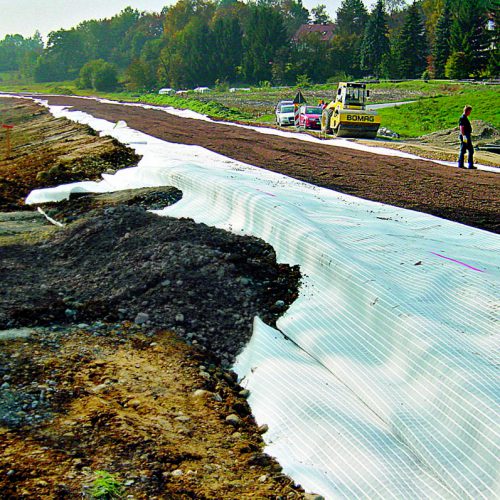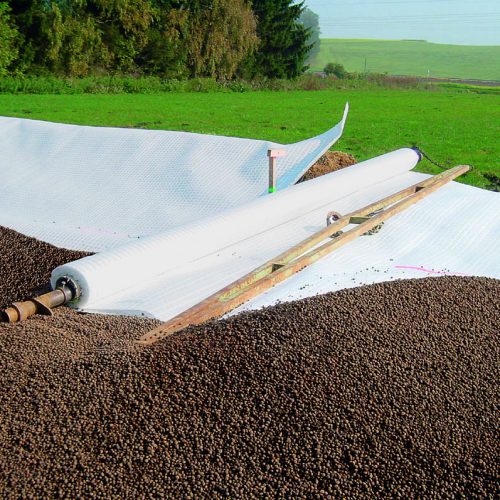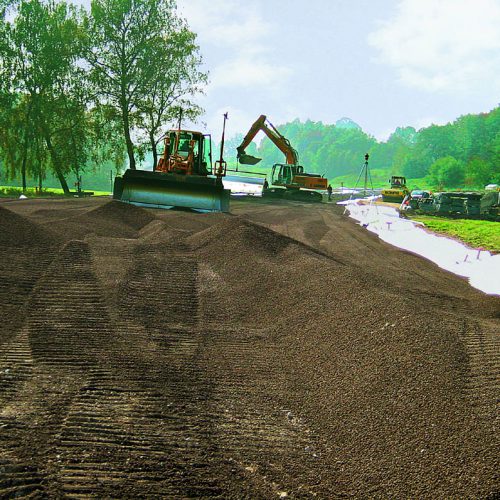Germany
Load compensation ring road “Ebersberg”
Year: 2006-2007
Location: Bavaria
Country: Germany
Volume: 17.000 m³ expanded clay 4-16 mm
Owner Builder: State government Bavaria
Contractor: Swietelsky Bau GmbH
Designer: Department of planning and building inspection Rosenheim
Problem / Solution
To build a ring road around Ebersberg it was necessary to pass an environmental and ecological very sensitive area of soft soils (Torfmoor), fully water saturated, with low bearing capacity. The question was to find a way of constructing without the necessity to replace the material of this special underground. Expanded clay with low weight, neutrality against environmental influences of different substances and stability, these questions could be answered in a perfect way. An embankment of a height between 0,5 up to 1,8 meters could be built. A special challenge was to organize daily amounts of 1.200 m³ which where necessary to ensure the progress of construction. With expanded clay it was possible to efficiently reduce weight load.
Experience
Directly on the surface a geotextile was spread out. The material was poured on this textile and distributed with bulldozers which could go on this material directly. After levelling, another layer of geotextile was put on the surface to apply- between 0,3 and 0,5 m- a covering layer of natural material on top. It was so effective that the finished surface could be used as delivery route which made it possible to deliver up to 1.200 m³ per day without causing a traffic jam on the existing roads. Afterwards the road construction could be finished right in time.
Why expanded clay?
Expanded clay has a bulk density of 350 kg/m³, therefore a minimum of weight load. The high stability, less necessity of compacting, properties of adequate compressive strength, drainage, stabile in form, nondependent of chemical conditions, frost resistant and absolutely no flammability are additional advantages which provide a long-term durability safely.
